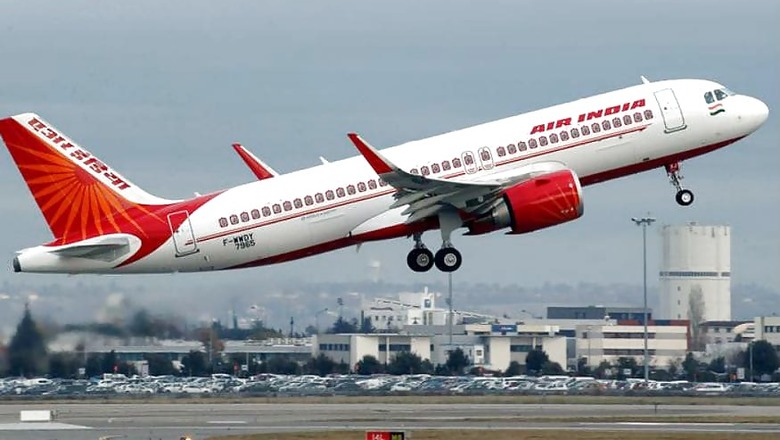
views
New Delhi: After its stake sale plan for national carrier Air India failed, the Centre has directed the ‘Maharaja’ to submit a plan of funds required as support from the government.
Headed by Air India chairman and managing director Pradeep Singh Kharola, a committee comprising the airline’s directors has been set up within Air India.
For the short-term, a senior Air India official told Indian Express that Rs 2,200 crore has been sought from the government as equity infusion to meet working capital requirements, including salary payouts. For the third month in a row, the airline delayed the payment of salaries in May.
The plan that is being formulated by the committee of directors will also take a call on the fleet requirements of Air India for the future given that all its existing orders have been fulfilled and the airline currently does not have any pending aircraft orders.
Apart from the plan to review airline’s operations, the Air India-specific Alternate Mechanism headed by union minister Arun Jaitley will review the situation of the carrier’s disinvestment, which has been put on hold for now.
However, minister of state for civil aviation, Jayant Sinha, on Wednesday, told reporters that the government was committed to the strategic disinvestment of Air India despite the conclusion of the process to sell 76 per cent stake in the airline.
The ministry of civil aviation had earlier received close to 160 queries from potential buyers of Air India. However, none of them translated into an Expression of Interest (EoI) for the 'Maharaja'.
The reasons were multiple, majorly being that the airline could not be pulled out of the debt gut despite its diversified air-coverage network and long-term loyal employee strength.
Potential bidders were further put off by the Centre’s decision to retain 24 per cent stake in the company, thus creating confusion over employee retention and hiring policy.
Experts also point to the requirement for buyers to retain the Air India brand for a specified period going against the government’s virtual marketing strategy.
Multiple news reports are suggesting that higher costs are resulting in a crunch wherein the domestic carrier has delayed salary payments and is raising tariffs to make ends meet.
Needless to say, higher tariffs will hit load factors or capacity utilisation. In such a backdrop, the last thing on anyone’s mind would be to make a large acquisition.
Crude oil prices have risen 14% in the last two months, taking the total price increase in the past year to around 50%. With no signs of a correction anytime soon, airline stocks have fallen.
Shares of Jet Airways (India) Ltd, the closest comparable for Air India, have halved this year and have fallen by about a third since the government invited EoIs for Air India. Last year, fuel accounted for 29% of total cost for Jet Airways, a full-service airline and 39% of total costs for IndiGo, a low-cost airline.
Experts estimate that the asset is being valued at over 10 times earnings on an EV/EBITDAR basis, even without ascribing any equity value. This was when other airlines were valued at 7-8 times their FY-17 earnings.
EBITDAR stands for earnings before interest, tax, depreciation, amortisation and lease rentals. EV, or enterprise value, includes the present value of future rentals, using a capitalization factor of seven times FY-17 rentals.




















Comments
0 comment